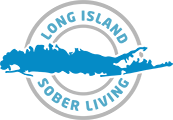Alcohol Use Disorder is a chronic condition. A chronic condition lasts longer than 365 days; it is also characterized by ongoing medical treatment. The nature of AUD also means that people commonly relapse after leaving a treatment program. Therefore, the chances are high that your loved one will return to alcohol abuse. Research has shown that 40% to 60% of recipients of treatment for AUD will relapse within the year. That’s why you are critical to your loved ones because you can help them remain sober while they are in recovery.
How Do I Help?
This question has several answers, including the following:

Take Care of Yourself.
You must remember to take care of yourself, and this is something that you can easily forget when your loved one is an alcoholic. If you fail to take proper care of yourself, you will be susceptible to anxiety, depression, or even physical illnesses. You must be in the best physical, mental and emotional condition to be of help to your loved one.
Learn as Much as Possible about Alcohol Use Disorder.
As with any chronic illness, you must be informed about the condition to be in the best position to help. Learn about the many treatments for this condition beyond therapy in a rehab facility. You may need assistance approaching your loved one about the extra help you believe that they need so that you can enlist the help of other family members and friends.
Understand that Your Loved One Will Be in Recovery Forever.
Relapses are part of the recovery process. Your loved one may have relapsed, but this doesn’t mean that you should give up on recovery. It means that your loved one needs to find another type of treatment that will place them on the right track. A relapse may only be a temporary setback, so your loved one can continue to move forward. One option that your loved one has is “Long Island Sober Living.”
Don’t Judge.
A common complaint of an alcoholic is that they feel judged by their family. If you want to help your loved ones, make every effort not to judge them. Try not to be critical or negative when you are speaking to them. Instead, make sure that they know that you love them. Take the time to tell them that they made the right choice in choosing to remain sober.
Don’t Be Unrealistic.
You might be holding unrealistic expectations about your loved one’s time in a treatment center. As was mentioned above, relapse is part of recovery, so you must not expect that your loved one will never fail. Treatment for AUD is not a cure for the condition. As was mentioned above, AUD is a chronic condition, and your loved one will have it for the rest of their life. You must not express disappointment if you sense that your loved one is not moving forward quickly enough. Disappointment will be easy to perceive, and this could lead to a relapse.
Listen to Your Loved One.
Some of the things that your loved one may need to talk about with you may be hard for you to hear. You must put in every effort to listen to your loved one. Everything will not be negative, but you need to offer your support when the topic of the discussion is unpleasant to hear. Then, your loved one will not hide things from you, and you will know the important things before they lead to unpleasant circumstances.
Have an Alcohol Free House.
If your loved one is going to live with you, make sure that the home is free of alcohol and substances.
If you cannot create a home free of alcohol and other substances, it would be better if your loved one did not live with you. Your home must not have any alcohol that your loved one will be able to find, and this will make it much harder for them to remain sober. They also must not go where they were able to drink freely. It will be up to you to encourage them not to frequent these places while living with you.
Remember that an Alcoholic Is Only Human.
Your loved one’s past behavior was a result of the disease of AUD, so it may require that you spend as little time with your loved one as you possibly can. This must not mean that you refuse to spend any time with this loved one. If your loved one senses that their family members want nothing to do with them, they will not call you when they need someone. At this point, it would help your loved one to enter a Long Island Sober Living home so that they can get back on the track toward sobriety.
Set Boundaries for Your Loved One.
You must not make it easy for your loved one to begin drinking again. This is not every enabler’s intention, but it is what ends up happening a lot of the time. To avoid this, you must set boundaries for your loved one and strictly enforce those boundaries. If you do not do this, your loved ones will believe that they can violate your boundaries whenever they feel like it. Your loved ones will respect your boundaries if they know that they will be enforced, and they will be grateful to you for placing those boundaries on them.
What If You Suspect a Relapse?
You may not be surprised that your loved one relapses because you are learning as much as you can about addiction. You don’t have to worry that a relapse means that your loved one cannot obtain sobriety again. As an important person to your loved one, you must be the one to address this issue should it present itself. If you act quickly, you can ensure that your loved one’s relapse is of short duration.
When you first speak to your loved ones, it must be when they are sober. The likelihood that you can have a constructive discussion will be very low if you fail to wait for the best time. The debate must not include accusations. Your loved one will be more receptive to what you have to say if you are discussing this delicate issue with statements that begin with “I.” For example, “I am concerned when I see that you have been drinking.”
You may want to enlist the help of your loved one’s other family members and friends. The other people in your loved one’s life may be willing to help you discuss the problem with your loved one. When you do this, you must make sure that you are doing so in a caring and nonjudgmental manner. You can suggest that your loved one attend a support group meeting. You may even be able to convince your loved one to consider staying at a Long Island Sober Living home.
Obtaining Ongoing Treatment.
Sometimes, it isn’t enough to enter an inpatient rehabilitation center and think that your treatment for AUD is over. After an inpatient program, your loved one may need ongoing treatment to ensure that they remain sober. A Long Island Sober Living home is one of the best places to obtain this continuous treatment.
A sober living home is a residential option that is halfway between residential treatment and returning home. It will be an excellent option for your loved one if they have been in an inpatient facility and do not feel comfortable going home afterward. Alcohol and other substances are not allowed in sober living homes, and residents receive a tremendous amount of support and services during their stays in these homes. If you and your loved one are concerned about relapsing after leaving an inpatient treatment center, you may suggest that they enter a Long Island Sober Living home.
Let Your Loved One Know that Help Is Readily Available.
Your loved one may have obtained treatment at a residential treatment center, so they may resist when you suggest that they return to a treatment program. On the other hand, if your loved one has already relapsed or is in danger of relapsing, they may be open to entering a Long Island Sober Living home. Before you have this discussion with your loved one, make sure that you visit the website for the Long Island Sober Living homes.
You will need to tell your loved one how the admissions process works, how your loved one will be able to pay for treatment, and what the program entails. If your loved one hasn’t been in treatment before, make sure they know what to expect. For example, they may want to know what the facilities are like and when they will have visitors. If you have answers to these questions, your loved one will be more likely to agree to enter a Long Island Sober Living home.
